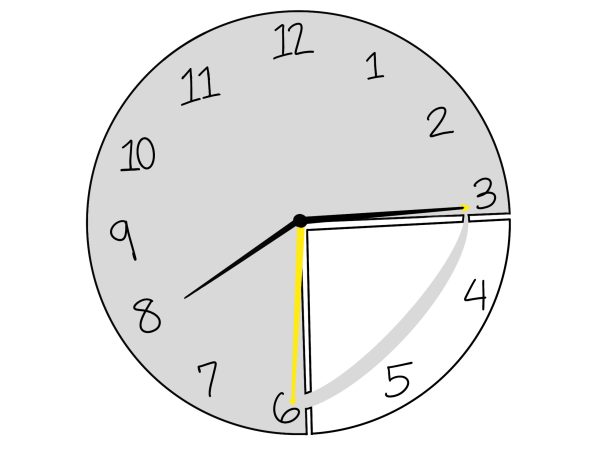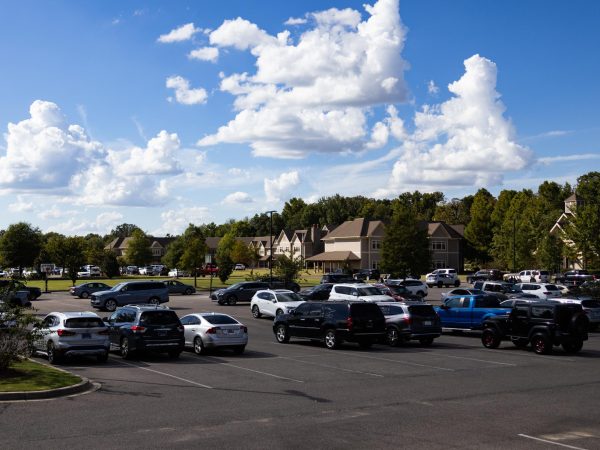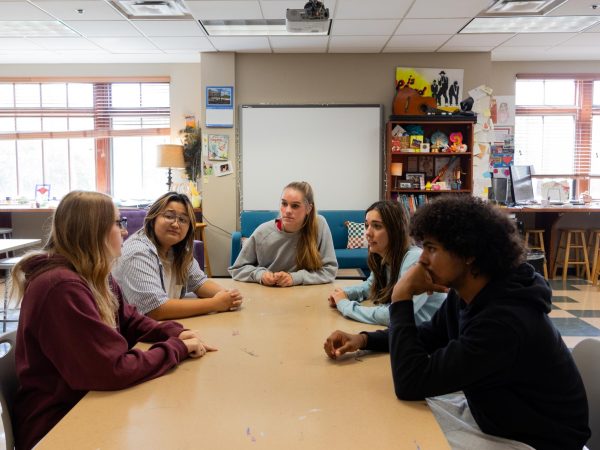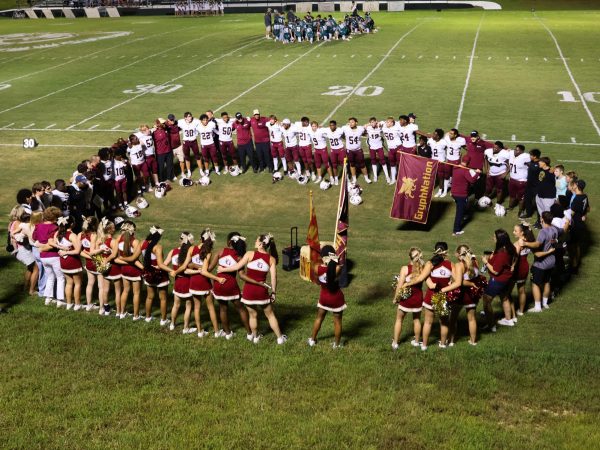Rundown of the Shutdown
AP Government teacher Ms. Metz explains the government shutdown.
Photo: Callie Hollis
Two days ago, Congress and the President announced that they have agreed to a deal to end the government shutdown. It lasted 35 days, the longest government shutdown in American history. Confused about what happened with the shutdown? The Lodge sat down with AP Government teacher Mrs. Emily Metz to get you the answers.
Q: Could you explain what a government shutdown is?
A: “In order for most things to run, they require money. The government basically reached an impasse where the funding for the previous year ended. They have funded it through Dec. 22. Then, under normal circumstances, Congress passes a bill to fund the government. The President then signs it, and the government keeps on rolling, because Congress is in charge of all of the government’s money. Congress has the power of the purse. The shutdown happens when both houses of Congress plus the president can’t agree on what should be in that funding package and what should be in the bill to fund the government.”
Q: How does the shutdown impact government workers?
A: “It impacts people in a few ways. People are being furloughed, which means they are sent home from work, and they get to just hang out and not spend any money, because they aren’t getting any money. They are basically just at home without pay. Or, they are asked to work without pay. People like the TSA [Transportation Security Administration] agents, people in the Department of Homeland Security, people who are deemed essential, are being asked to come to work as normal, except they don’t get a paycheck for it. Once the government reopens, they will get all the paychecks they’ve missed. But, they still are being asked to work without pay. So it impacts people a lot. They aren’t getting income that they count on to pay bills, to buy food for their families, or to pick up medication. It also impacts the economy. Since people are counting their pennies for necessities like food, medicine [and] bills, they are not spending money on consumer goods. They aren’t making big purchases. They aren’t spending money and putting money back into the American economy. So it’s kind of a two-fold impact.
Q: How does the shutdown affect other organizations and services?
A: A lot of funding for museums, like the Smithsonian, comes from the government. Specifically, it comes from the National Science Administration. The National Science Administration is funded by the government, and then the money from the National Science Administration is what pays the bills at those museums. So when the organization has no money, they cannot pay their employees, which means the museums can’t open. Same thing with the national parks. The nation parks service is part of the Department of Interior, and since no one is technically working for the Department of Interior right now, rangers can’t do their jobs.
Some parts of government are still partially funded. They recently passed a bill to fund the FDA, so our food still gets inspected. They are funding bits and pieces. Trash, like the municipal trash service, is through Germantown or Collierville. State governments and local governments still have funding. It’s just the federal government and federal employees that don’t currently have funding.
Q: What does it take to end a shutdown?
A: The House of Representatives and the Senate would have to both agree on an identical version of a bill to pass. They would have to pass a bill that is absolutely word-for-word, comma-for-comma identical. Then that bill would have to be sent to the president, and the president would have to sign it. The problem that we are seeing now is that the House of Representatives is controlled by the Democratic party, the Senate is controlled by the Republican party, and the president is a Republican. So none of them see eye-to-eye at this point. Various senators want different things from the president who want different things from the representatives who want different things from the senate. It’s kind of just a bunch of adults who can’t get along and can’t seem to find anyway to get along. Get along for the children, right?












